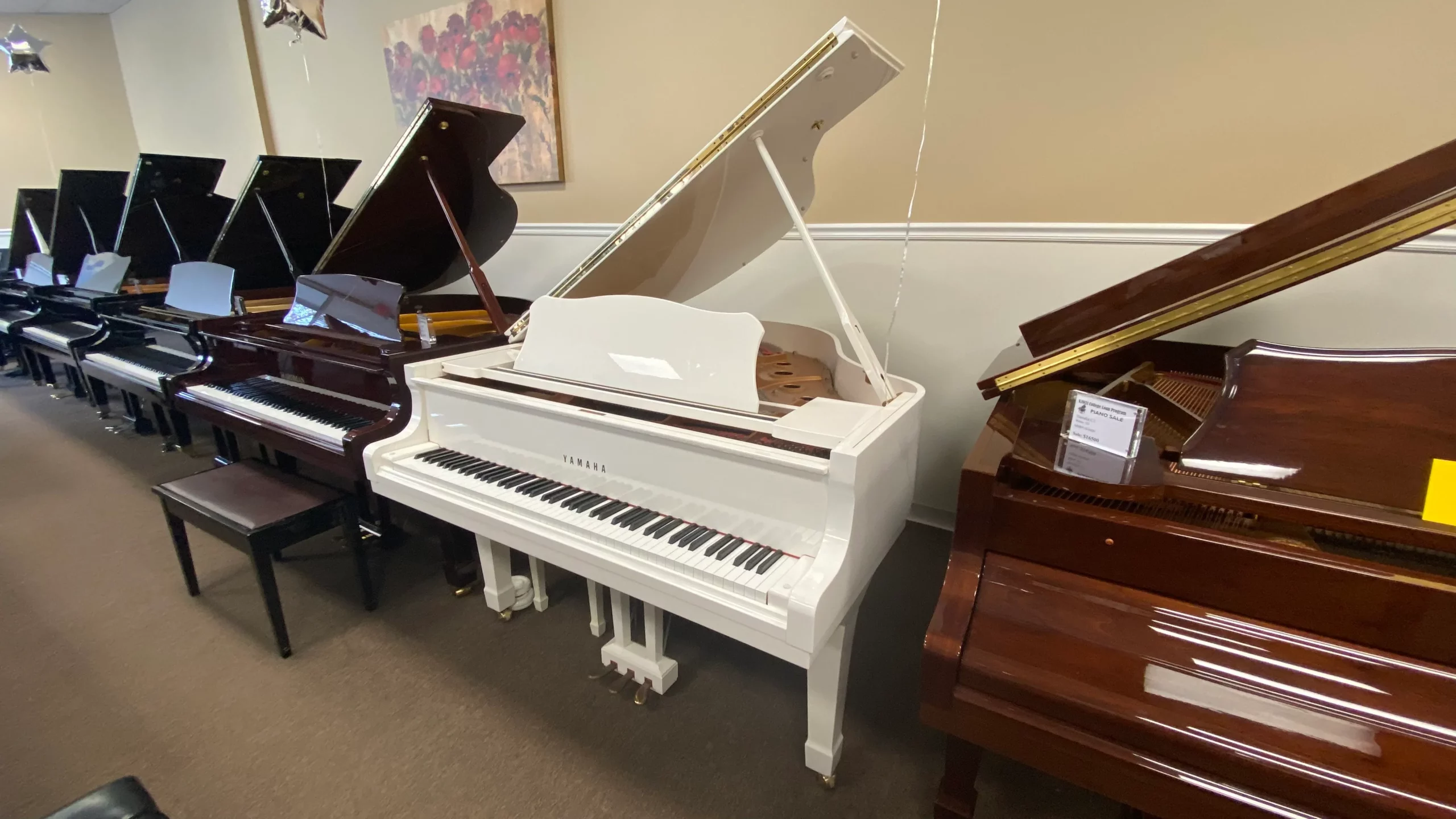Have you ever wondered how long it takes to truly master the guitar? Maybe you’ve just started learning and are eager to know when you’ll finally be able to play your favorite songs flawlessly. Or perhaps you’ve been playing for a while but feel like your progress has plateaued. Trust me, I’ve been there too.
In this article, we’ll take an honest look at the journey of becoming a skilled guitarist. From the basics of learning chords and strumming patterns, to mastering complex solos and improvisation techniques, we’ll cover it all. So if you’re ready to learn what it really takes to become a great guitarist, keep reading!
So, how long does it take to get good at guitar?
The amount of time it takes to become good at playing guitar varies for each individual. While some may have a natural talent and can pick up the instrument quickly, others may take longer to develop their skills. However, with consistent practice and dedication, most people can become proficient within 1-2 years.
It’s important to note that becoming “good” at guitar is subjective and can mean different things to different people. Some may consider being able to play a few chords and strum along to their favorite songs as being good, while others may strive for more technical proficiency or even professional level playing.
Regardless of your personal definition of “good,” the key factor in improving on guitar is regular practice. This doesn’t necessarily mean hours upon hours every day, but rather setting aside dedicated time each week to work on your skills.
Additionally, seeking guidance from a teacher or taking lessons can greatly accelerate the learning process. They can provide valuable feedback and help you avoid common mistakes that could hinder your progress.
Ultimately, there is no set timeline for how long it takes to get good at guitar. It all depends on your own dedication and commitment towards practicing regularly and continuously challenging yourself with new techniques and songs. With perseverance and patience, anyone can become a skilled guitarist over time.
Understanding the Learning Curve: From Novice to Proficient Guitarist
Understanding the Learning Curve: From Novice to Proficient Guitarist
You know, learning to play the guitar is a lot like climbing a mountain. At first glance, it’s daunting and seems impossibly high. The journey from being an absolute beginner – fumbling fingers on strings, struggling with chords and frets – to becoming a confident guitarist can feel overwhelming. But don’t lose heart! It’s important to understand that this process of transformation involves experiencing ups and downs; in fact, there is an actual term for it called ‘the learning curve’. This is essentially your personal timeline marking your growth as you gradually conquer this musical peak.
Let’s break down this so-called ‘learning curve’. First off –
- Week 1-4: You are just starting out – everything feels awkward and challenging.
- Week 5-8: Slowly but surely things start falling into place. Chords aren’t too tricky anymore!
- Month 3 onwards:You begin strumming along with your favorite songs confidently.
Along this journey you’ll face times when progress seems slow or stagnant; these plateaus are natural parts of the climb towards proficiency! Remember every skilled guitarist started at ground zero too. So take one step (or note) at a time and soon enough you’ll be playing beautiful melodies effortlessly!
–
Breaking Down Guitar Basics: Chords, Strumming Patterns, and Scales
The magic of music lies within the realm of guitar basics: chords, strumming patterns, and scales. The enchanting symphony that a guitar produces starts with understanding these three fundamental elements.
Firstly, let’s unravel the mystery behind guitar chords. Chords are essentially a group of notes played together at once. In simple terms, they’re like building blocks for songs – just like Lego pieces make up an epic castle. Some basic chords you’ll come across in your journey include G major, C major and D major among others.
Next up we have strumming patterns,, which is essentially how you play or ‘strum’ these chords to create rhythm. For instance, a common pattern usually referred to as “down-down-up” tells you exactly how to move your hand – two strokes downwards followed by an upward stroke.
Finally comes our last piece of treasure- scales. Scales provide groundwork for melodies and solos; imagine them like paths leading to musical expression! The most common type being Major scale which consists of seven notes, with other types such as Minor scales and Pentatonic scales popular too.
So there you have it – the enchanting world of guitar basics. With these tools in your arsenal, you’re ready to create your own beautiful musical symphony.
Read also: how long does it take to get good at guitar
Time Investment Required for Different Guitar Skill Levels
When you’re starting out on your journey as a guitarist, the most important thing to remember is that practice and time investment are key. As a beginner, you might find yourself needing to devote anywhere from 10-15 hours per week at least or more if possible. This is necessary for drilling in basic chords, strumming patterns and getting comfortable with holding the guitar properly. Your fingers will need time to build strength so don’t get disheartened if progress seems slow initially!
As you develop into an intermediate player, practicing guitar becomes less about quantity and more about quality. You may still be putting in around 10-15 hours per week but this time should be focused on:
- Diversifying your musical repertoire.
- Improving finger dexterity through scales and exercises.
- Honing improvisation skills.
- Fine-tuning your ear training abilities.
Persistence is the name of the game here! The road from novice to expert requires patience but each small victory brings its own joy. Remember that some days might feel like plateaus but they too serve as stepping stones towards becoming a proficient guitarist.
 how long does it take to get good at guitar
how long does it take to get good at guitar
The Importance of Consistent Practice in Mastering Guitar
The Importance of Consistent Practice in Mastering Guitar
Ah, the glorious sounds that can be coaxed from the six strings of a guitar! But it does not come easy. Mastery requires dedication and consistent practice. It’s like laying a brick house – you place one brick at a time until before you know it, there stands an impressive structure. Similarly, each chord learned and every note strummed is another ‘brick’ towards becoming a proficient guitarist. Sporadic bursts of motivation won’t cut it; consistency is key here.
This may all sound daunting but fear not: dedicated practice doesn’t mean spending endless hours sweating over your beloved instrument. Instead, focus on quality over quantity.
- Routinely dedicate specific times for practicing: Establishing this rhythm entrains your mind and fingers to better appreciate and hone their craft.
- Vary between technical drills and ‘play’ time: Balancing structured learning with free play keeps things fun while ensuring skills development.
- Treat mistakes as friends: They’re signalling where more work needs doing!
So really, mastering the guitar isn’t just about talent or passion—it’s also about commitment to consistent practice. By creating disciplined yet enjoyable routines, you will find yourself increasingly capable of making those strings sing sweetly under your touch.
You may also like: yamaha digital piano types
Conclusion: Realistic Expectations and Personal Commitment in Becoming a Great Guitarist
Becoming a great guitarist isn’t an overnight magic, it’s more about consistent dedication, practice and realistic expectations. You should be aware that Rome wasn’t built in a day, similarly mastering this instrument demands time and patience. It’s indeed true that some have a natural affinity for music but even then, regular practice cannot be compromised. Understand your strengths and play to them; if you’re good at strumming, work on it further while simultaneously honing other techniques like finger picking or slide guitar work.
Persistence is the key when it comes to learning guitar. Picking up new chords or scales might seem confusing initially but don’t let that discourage you.
- Dedicate specific hours of the day to just practicing.
- Set achievable goals each week – maybe learn a new chord or perfect an existing one.
- Don’t forget to celebrate small victories as they will keep you motivated throughout your journey.
Remember, every accomplished guitarist started where you are today. They also had their share of fumbled notes and sore fingertips before they could mesmerize people with their melodies. So bear in mind that becoming adept at playing guitar involves both realistic expectations of progress and personal commitment towards consistent practice.
The road may seem long but trust me,
with passion driving your efforts,
the destination is worth all the sweat!

